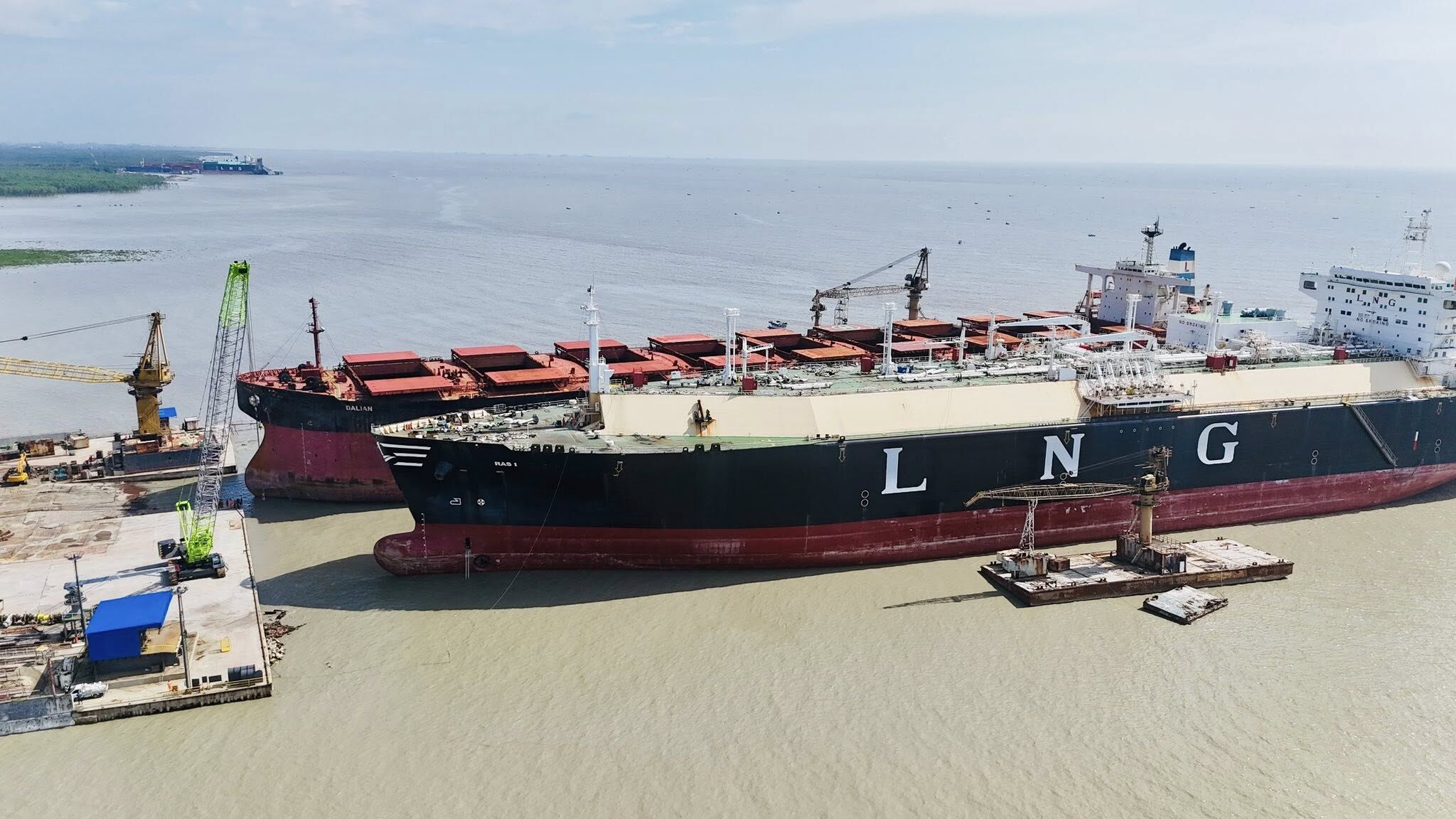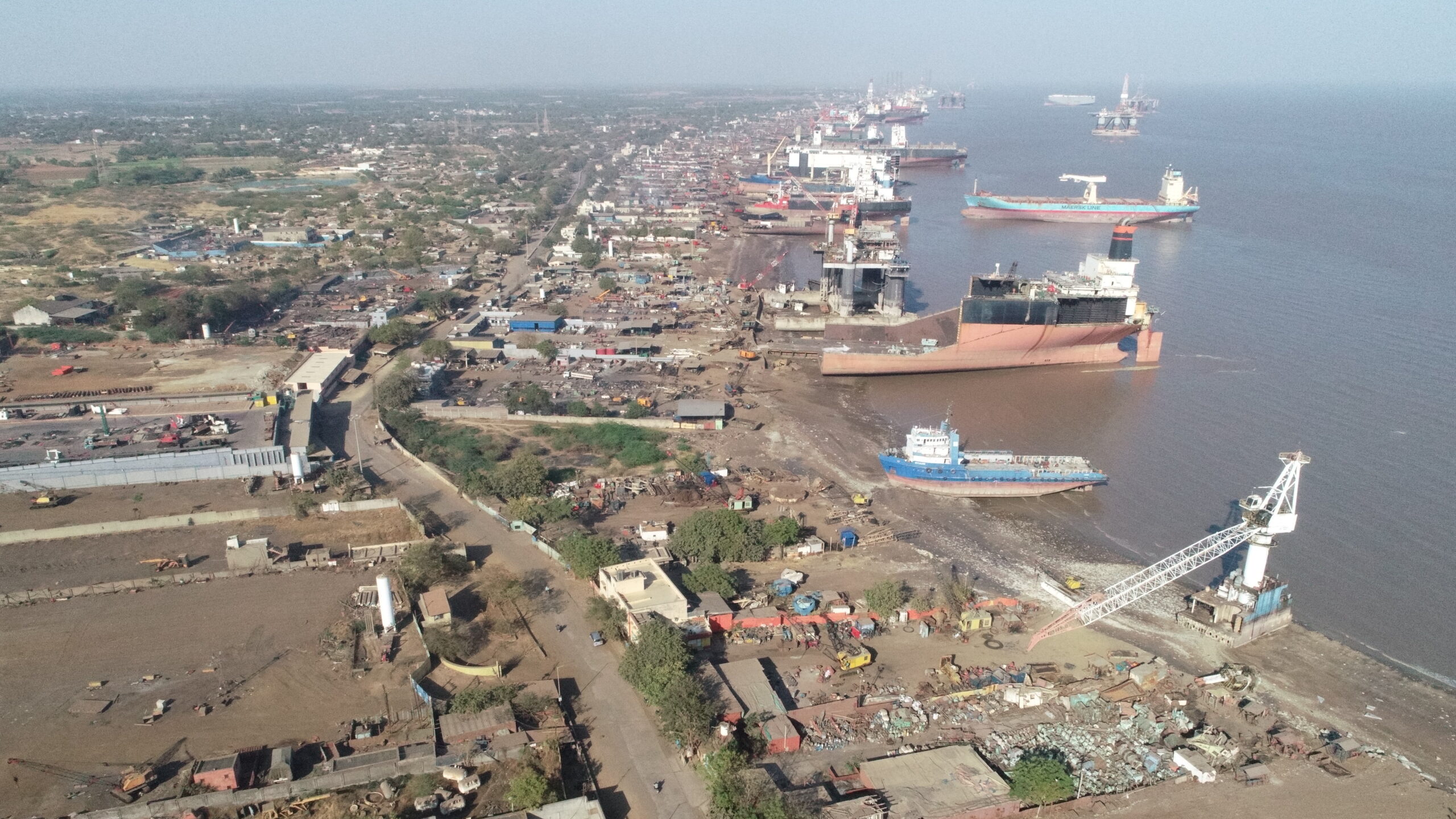Ship Recycling Market Faces Unprecedented Challenges Amid Geopolitical Crises
According to GMS’ latest weekly ship-recycling report, the global ship-recycling market is facing severe disruptions as a combination of geopolitical tensions, escalating conflicts, and economic uncertainty impacts the availability of tonnage and the stability of pricing trends. The situation has intensified over the past year, with tonnage supply remaining constrained, while global economies face mounting challenges, including inflationary pressures and nuclear threats.

Geopolitical Chaos Escalates, Affecting Global Economies
The ongoing war in the Middle East, particularly the growing tensions involving Israel, Hamas, Hezbollah, and Iran, has significantly contributed to the current instability. Israel’s continued military operations in Gaza and Lebanon, along with the specter of a larger conflict involving Iran, have left the world on edge. The situation grew even more alarming when the United States green-lit Israel’s retaliatory efforts, heightening concerns of a broader regional war. This week saw U.S. airstrikes in Yemen, responding to attacks on a British oil tanker, the CORDELIA MOON, by Houthi rebels in the Red Sea.
The possibility of Israel launching strikes on Iran’s nuclear facilities looms large, with Tehran threatening nuclear retaliation if attacked. Speculation surrounds potential strikes on Iranian oil refineries and major seaports, further destabilizing the global oil market. The mere possibility of such action caused crude oil prices to rise sharply toward the end of the week. Should the conflict escalate, global economies already reeling from inflation could find themselves in deeper turmoil.
Impact on Ship Recycling Markets
While the geopolitical situation deteriorates, the ship recycling industry has suffered from a scarcity of available vessels for recycling, with tonnage remaining at a premium. Despite some brief gains in pricing trends due to firming steel plate prices in China, the ongoing shortage of vessels suitable for dismantling continues to weigh heavily on the industry.
GMS’ report highlights that, for the second week in a row, local steel plate prices have remained relatively firm across major ship recycling markets. This stability has done little to alleviate the broader challenges faced by the industry, particularly the dearth of tonnage, which has become a defining characteristic of 2023. The limited supply of ships for recycling has further driven up competition among shipbreaking nations, straining the market’s ability to meet demand.
In addition, the global economic situation has created more uncertainty for the ship recycling industry. Following a U.S. Federal Reserve interest rate cut of 0.5% earlier this year, many of the world’s currencies, particularly in major shipbreaking nations, have depreciated further against the U.S. Dollar. This depreciation has added to the jitters in the recycling market, as the cost of imports for recycling materials rises, adding to the financial strain on the industry.
Regional Market Performances
In terms of regional market performances, India has seen the most positivity this week, with its ship recycling market showing relative strength. However, this momentum is expected to slow as the market stabilizes, with many experts predicting that the recent gains are unlikely to be sustained over the long term. India’s market remains vulnerable to broader economic fluctuations and external pressures, including the impact of rising oil prices.
Bangladesh, which has traditionally been a major player in the ship recycling market, continues to underperform. The country has slipped to last place in market rankings, reflecting its struggles to secure tonnage and maintain competitive pricing. Despite some improvements in steel plate prices, the overall outlook for Bangladesh remains bleak as it grapples with ongoing economic challenges.
Pakistan, on the other hand, has recorded some improvements, bolstered by the firming steel prices in China. The Pakistani market has responded to these price gains with increased activity at its Gadani shipbreaking yards. However, Pakistan’s overall performance remains tied to the fluctuations in global steel demand, which can change rapidly in the current volatile environment.
Turkey’s ship recycling market has also shown some positive signs, reporting improved steel prices and a weakening of the Turkish Lira (TRY), which has helped boost demand for shipbreaking activities. However, Turkey’s position at the far end of the market makes it more vulnerable to external shocks, including geopolitical tensions and currency fluctuations. Despite these improvements, Turkey still faces challenges in attracting sufficient tonnage to its shipyards.
Global Economic Uncertainty and Future Outlook
As global stock markets rallied this week on news of economic stimulus measures in China, there remains hope that this could lead to increased demand for recycled steel and other materials. However, the ongoing October holidays in China have temporarily stalled any major market movements. The ship recycling industry is closely watching how China will respond once its economy fully reopens after the holiday period. Should demand for steel and other recycled materials surge, it could provide a much-needed boost for the industry in the final quarter of 2024 and into 2025.
One major question facing the ship recycling market is whether a rise in oil prices could lead to an increase in the number of tankers being sent for recycling. With the global oil market already jittery due to the escalating conflict in the Middle East, a spike in oil prices could prompt older tankers to be scrapped, providing a fresh supply of vessels for the recycling yards.
However, for now, the industry remains in a state of uncertainty, with the availability of tonnage remaining limited and pricing trends volatile. The future of the ship recycling market will likely depend on a range of factors, including the outcome of geopolitical conflicts, the direction of global economic policy, and the availability of ships for dismantling.
Conclusion: A Market on Edge
The ship recycling market finds itself at a critical juncture, heavily impacted by a range of external factors, including the ongoing Middle Eastern conflicts, rising oil prices, and global economic uncertainty. The industry is in desperate need of stability, but with the prospect of a broader war and further inflationary pressures, the outlook remains grim. As the world watches anxiously for developments in the Middle East and China, the ship recycling industry will have to navigate these turbulent waters with caution, hoping for some relief in the months ahead.
Author: shipping inbox
shipping and maritime related web portal








